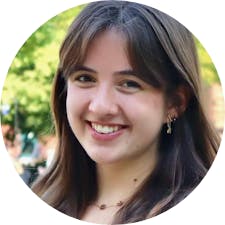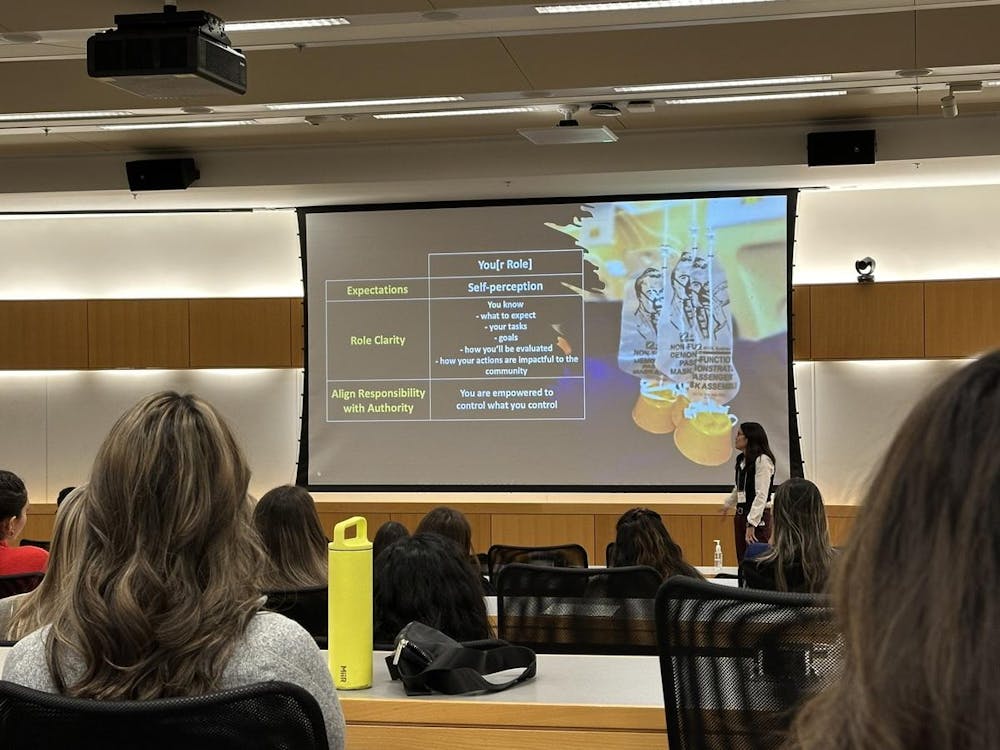The American Medical Women’s Association — an organization “dedicated to advancing women in medicine and improving women’s health,” according to its website — hosted its Northeast Regional Conference at the Warren Alpert Medical School last Saturday. Attendees heard from women in medical leadership, participated in workshops and networked with others in the field.
Melisa Lai-Becker ’94 MD’99, an emergency medicine physician and deputy chief at Mass General Brigham Enterprise Emergency Medicine, gave the keynote lecture: “Caring for Community by Putting Your Own Oxygen Mask on First: Thoughts from a 5’4” Female Frontline Physician.” She highlighted the difficulties of managing personal and external expectations as a woman in medicine.
“Because you're a woman, you have these expectations for yourself, but then there are all these external expectations on you,” Lai-Becker told the audience. “You're expected to be the nurturing one, to be the caring one.”
Lai-Becker outlined the steps to making an impact in one’s career: determining one’s own expectations, attaining role clarity and aligning responsibility with authority.
At the end of the lecture, she urged the audience of female doctors-to-be to be proud of their accomplishments.
“This is my ask,” Lai-Becker said, “Get used to being called ‘Doctor.’ Let people call you ‘Doctor’ when you are a doctor.”
Amalia Bay MD'26, who directs AMWA's medical student division in the Northeast, noted that "spaces like these to both commiserate and support people with shared experiences is incredibly valuable to feeling fulfilled personally and professionally."
The topic of authority and gender continued into the panel discussion “Women in Medical Leadership,” during which four physicians discussed their experiences as women in medicine and gave advice to those on the same path.
The physicians recounted instances of prejudice they had experienced in their careers, leading to audible gasps from the audience. Barbara Edelheit, division head in pediatric rheumatology at Connecticut Children’s Medical Center, recalled a former male division head telling her not to worry about academic promotion because she was “on the mommy track.”
Dr. Angela Caliendo, professor of medicine and executive director of Brown Physicians, Inc., highlighted how much the medical field has changed in her lifetime.
“You're not going to be the only woman in the room, like the first 20 years of my career,” Caliendo said. “Take advantage of the fact that there’s more of you in the room and support each other.”
Pursuing medicine as a woman is uniquely challenging, the panel members agreed. “We’re made to feel like we’re wrong a lot as females in medicine and females in leadership,” Associate Professor of Surgery Reena Bhatt said.
According to Patricia Poitevien ’94 MD’98, senior associate dean for diversity, equity and inclusion at Warren Alpert, staying resilient in pursuing medicine is doubly important because of that difficulty.
“What makes us special and your voices special is that you're different,” Poitevien said. “What you bring to every room you sit in is going to be slightly different than (that of) the men who might be sitting around you.”
Audience members said that the conference’s programming left them inspired for their medical careers.
“The physician panel was probably the most impactful for me, just hearing about their experiences with male colleagues,” Alicia Muench, a first-year medical student at the University of New England, said. “It's a shame that they had those experiences, but it's also comforting that people have had the same experiences.”
“Most of the physicians in my family are men,” shared Chinazo Onyema ’24, “so, it's very nice seeing women who are not only making a difference in the world but also inspiring younger women.”

Elise Haulund is the managing editor of production and development for The Herald's 136th Editorial Board. She is from Redondo Beach, CA. Concentrating in English and biology, she has a passion for exploring the intersection between STEM and the humanities. Outside of writing, researching and editing, she enjoys ballet-dancing, cafe-hopping and bullet-journaling.





